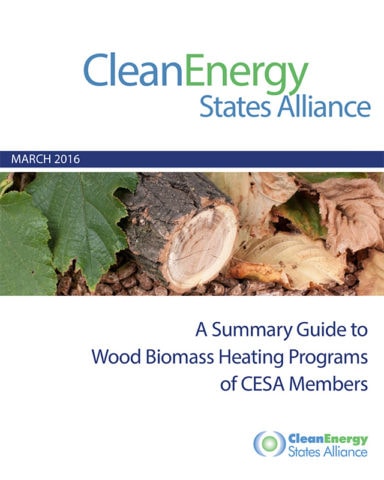A Summary Guide to Wood Biomass Heating Programs of CESA Members
Val Stori, Project Director, CESA
This document surveys current and planned activities of CESA member states that are focused on the deployment of modern, high-efficiency, wood heating systems.
Advanced wood biomass heaters (also known as hydronic heaters or biomass boilers) are becoming more commonplace in the U.S. market. The emission profiles and efficiency (performance) of these systems are of particular importance, especially if the technology is replacing or displacing fossil fuel (natural gas, propane) use. Biomass heaters have advanced significantly in terms of performance, emission reduction, and efficiency over the last twenty years, mainly due to tightening regulations in Europe where policies support an advanced biomass heating sector. Current advanced biomass heaters operate and start/shut down automatically, with low emissions and efficiencies of up to 85 percent. By controlling combustion, metering air intake, modulating heat output, including a buffer tank, and integrating low-temperature distribution systems, modern biomass heaters are more clean and efficient. Several state clean energy programs provide incentives for advanced biomass heaters; most of the programs are in the Northeast and the northern tier of the west coast. The cost of a typical residential system ranges from $18,000 to $25,000, and a 1.7 MMBtu commercial system has an average installed cost of $378,000.
Associated Project(s):
Resource Details:
Date: March 16, 2016
Type: Report
Topic(s): Renewable Heating & Cooling

